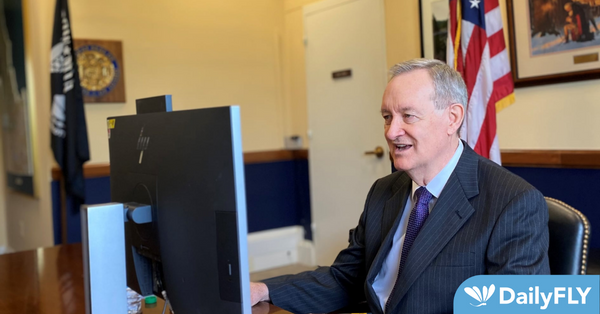Washington, D.C.–U.S. Senator Mike Crapo (R-Idaho) joined 19 additional senators to introduce the Local Radio Freedom Act, which states that Congress should not impose new taxes or fees on locally owned radio stations.
“Local radio stations connect Idahoans driving long distances across both rural and urban areas to local, state and national news,” said Crapo.“Radio is an essential news and entertainment service to the American people and imposing new fees or taxes on local, free, broadcast radio would jeopardize the very services on which Idahoans rely.”
The Local Radio Freedom Act underscores the critical importance of locally owned radio stations to families, small businesses and our communities, and it declares that Congress should not impose any new performance fee, tax, royalty or other charges for locally-owned radio stations. Led by Senators Maggie Hassan (D-New Hampshire) and John Barrasso (R-Wyoming,) the resolution is co-sponsored by Senators John Boozman (R-Arkansas), Mike Braun (R-Indiana), Shelley Moore Capito (R-West Virginia), Susan Collins (R-Maine), Kevin Cramer (R-North Dakota), Steve Daines (R-Montana), Martin Heinrich (D-New Mexico), John Hoeven (R-North Dakota), Ron Johnson (R-Wisconsin), Angus King (I-Maine), Cynthia Lummis (R-Wyoming), Jeanne Shaheen (D-New Hampshire), Kyrsten Sinema (I-Arizona), Dan Sullivan (R-Alaska), Jon Tester (D-Montana), Roger Wicker (R-Mississippi) and Todd Young (R-Indiana).
Supporting the Local Radio Freedom Act.
Whereas the United States enjoys broadcasting and sound recording industries that are the envy of the world due to the mutually beneficial relationship that has existed among these industries for many decades;
Whereas, for nearly a century, Congress has rejected repeated calls by the recording industry to impose a performance fee on local radio stations for simply playing music on the radio, as such a fee would upset the mutually beneficial relationship between local radio and the recording industry;
Whereas local radio stations provide free publicity and promotion to the recording industry and performers of music in the form of radio airplay, interviews with performers, introduction of new performers, concert promotions, and publicity that promotes the sale of music, concert tickets, ring tones, music videos, and associated merchandise;
Whereas committees in the Senate and the House of Representatives have previously reported that “the sale of many sound recordings and the careers of many performers have benefitted considerably from airplay and other promotional activities provided by both noncommercial and advertiser-supported, free over-the-air broadcasting”;
Whereas local radio broadcasters provide tens of thousands of hours of essential local news and weather information during times of national emergencies and natural disasters, as well as public affairs programming, sports, and hundreds of millions of dollars worth of time for public service announcements and local fund raising efforts for worthy charitable causes, all of which are jeopardized if local radio stations are forced to divert revenues to pay for a new performance fee;
Whereas there are many thousands of local radio stations that will suffer severe economic hardship if any new performance fee is imposed, as will many other small businesses that play music, including bars, restaurants, retail establishments, sports and other entertainment venues, shopping centers, and transportation facilities; and
Whereas the hardship that would result from a new performance fee would hurt businesses in the United States and ultimately the consumers in the United States who rely on local radio for news, weather, and entertainment, and such a performance fee is not justified when the current system has produced the most prolific and innovative broadcasting, music, and sound recording industries in the world: Now, therefore, be it
Resolved by the Senate (the House of Representatives concurring), That Congress should not impose any new performance fee, tax, royalty, or other charge—
(1) relating to the public performance of sound recordings on a local radio station for broadcasting sound recordings over the air; or
(2) on any business for the public performance of sound recordings on a local radio station broadcast over the air.
